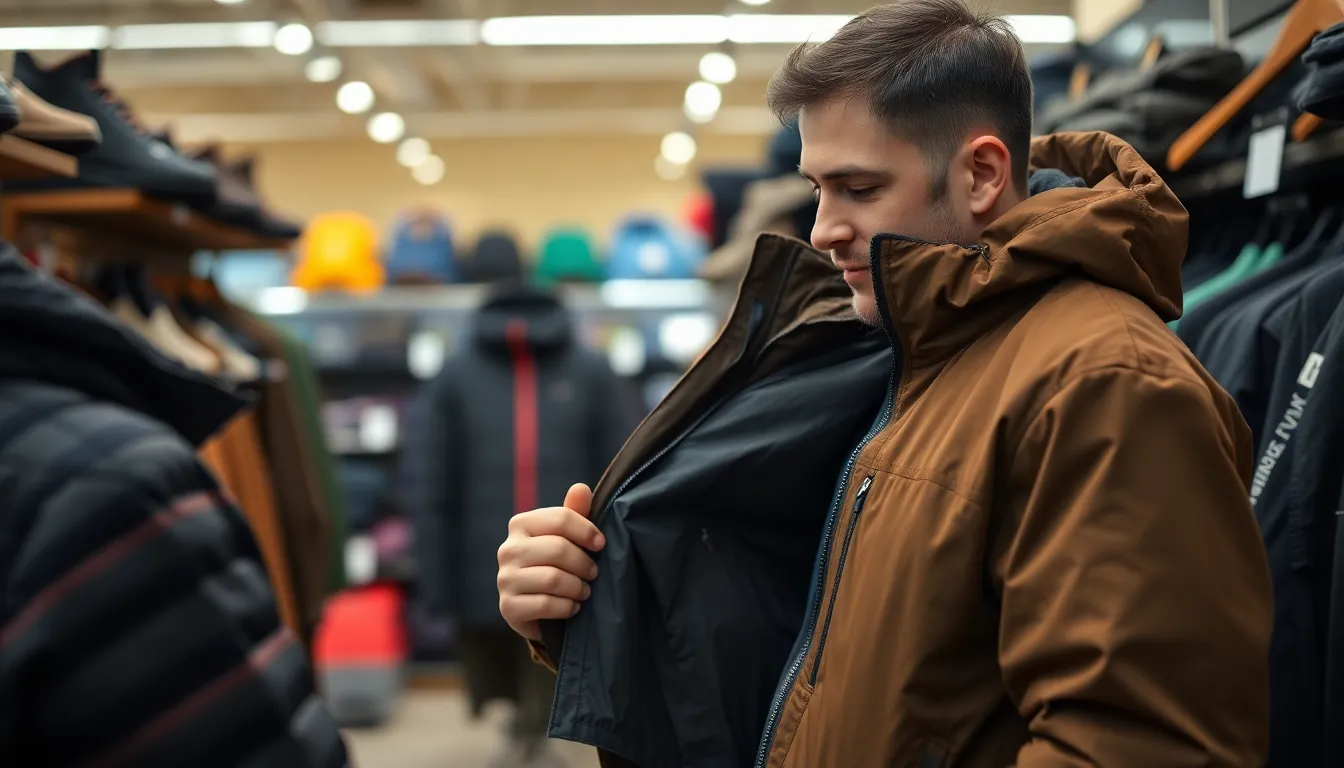Navigating the world of gear can feel overwhelming, especially with so many options available. Whether it’s outdoor equipment, tech gadgets, or fitness gear, making the right choice is crucial for maximizing performance and enjoyment. This guide aims to simplify the buying process, helping readers identify their needs and select the best products for their lifestyle.
Understanding key features and specifications can make all the difference. By focusing on quality, functionality, and value, individuals can invest wisely in gear that stands the test of time. From beginners to seasoned enthusiasts, everyone can benefit from a well-informed approach to gear shopping. With the right insights, finding the perfect equipment becomes not just easier, but also more enjoyable.
Table of Contents
ToggleUnderstanding Gear Essentials
Understanding gear essentials involves identifying the various types of gear available and the criteria for making suitable choices. This knowledge facilitates informed decisions that enhance experiences in outdoor activities, technology, and fitness.
Types of Gear
- Outdoor Equipment
Outdoor equipment includes tents, sleeping bags, hiking boots, and camping stoves, among others. Each item plays a crucial role in enhancing comfort and safety during outdoor adventures.
- Tech Gadgets
Tech gadgets encompass smartphones, GPS devices, cameras, and smartwatches. These devices enhance communication, navigation, and overall enjoyment while participating in various activities.
- Fitness Gear
Fitness gear consists of apparel, shoes, weights, and exercise machines. Quality fitness gear supports performance and reduces the risk of injury, catering to activities like running, weightlifting, and yoga.
Choosing the Right Gear for Your Needs
- Assess Activity Requirements
Assess activity requirements based on the specific demands of each venture. For example, camping gear differs significantly from gym equipment due to varying performance needs.
- Analyze Features and Specifications
Analyze features and specifications, including durability, weight, and weather resistance. Evaluating such criteria ensures that the selected gear meets individual expectations.
- Consider Budget Constraints
Consider budget constraints while focusing on quality. Setting a budget helps prioritize essential features without compromising on value and functionality.
- Research Brand Reputation
Research brand reputation by reading reviews and seeking recommendations. Reliable brands often produce superior products that enhance user experience.
- Test before Buying
Test gear before buying whenever possible. Trying on apparel, testing gadgets, and examining equipment in-store provide valuable insights into comfort and performance.
- Seek Expert Advice
Seek expert advice from knowledgeable sources. Consulting professionals in relevant fields ensures access to accurate information and personalized recommendations.
Key Factors to Consider

Making wise gear purchases involves several critical factors. Understanding these elements helps buyers select products that enhance performance and satisfaction.
Budget Considerations
Assessing budget constraints defines the scope of gear options. Prices can vary significantly based on features, brand reputation, and materials used. Establish a clear budget before exploring options to prevent overspending. Consider the long-term value of gear investments; sometimes higher upfront costs lead to better quality and durability. Prioritize essential features within the budget to maximize value without compromising on vital functionality.
Quality and Durability
Evaluating quality and durability ensures reliable gear performance. Look for products made from robust materials that withstand wear and tear. Factors like waterproofing, resistance to temperature extremes, and overall construction quality contribute significantly to durability. Check product reviews and ratings to gauge user experiences, focusing on how gear holds up over time. Reputable brands typically offer warranties or guarantees, signaling commitment to quality and customer satisfaction. Prioritize gear that combines high quality with functionality to ensure lasting use in various conditions.
Researching Gear Options
Researching gear options involves gathering information to make informed decisions. This includes examining reviews, recommendations, and understanding brand reputations.
Online Reviews and Recommendations
Online reviews offer insights into gear performance and user satisfaction. Check major retail websites, specialized forums, and social media platforms for diverse opinions. Look for reviews that discuss specific features and performance in real-world conditions. Pay attention to both positive and negative feedback, as balanced reviews provide a comprehensive view of the product. Consider aggregating ratings from multiple sources to identify consistent trends among users.
Brand Reputation
Brand reputation significantly influences the quality and reliability of gear. Research the history and background of brands, focusing on their expertise in specific categories. Brands known for quality often prioritize customer satisfaction and product durability. Explore industry awards and recognitions, as these accolades reflect innovation and performance. Evaluate how brands respond to customer inquiries and warranty claims, as good customer service often accompanies reputable brands. Choose brands that align with your values and requirements to ensure a satisfying purchase experience.
Making Informed Purchases
Making informed gear purchases involves understanding the options available, whether new or used, and being aware of warranty and return policies.
New vs. Used Gear
Choosing between new and used gear can affect cost and performance. New gear often comes with the latest features and warranty coverage. However, used gear offers significant savings. Buyers should consider the condition, wear, and performance history of second-hand items. For instance, purchasing used camping equipment may provide access to premium brands at lower prices. Conducting thorough inspections and verifying the functionality of used items is essential. Researching online platforms and local shops dedicated to used gear can yield valuable options while ensuring quality.
Warranty and Return Policies
Understanding warranty and return policies protects buyers in case of defects or dissatisfaction. Warranties typically cover repairs or replacements, providing peace of mind. Buyers should review warranty duration and coverage specifics. Additionally, return policies allow buyers to return gear if it doesn’t meet expectations. Familiarizing oneself with timeframes and conditions for returns can prevent complications. Prioritizing retailers with generous policies enhances the purchasing experience, ensuring confidence in the gear selected.
Navigating the gear buying process doesn’t have to be overwhelming. By focusing on quality functionality and value readers can make informed choices that elevate their experiences. Understanding the nuances of each product category empowers buyers to select gear that meets their unique needs.
Researching options reading reviews and considering brand reputation are essential steps in this journey. Whether opting for new or used gear it’s crucial to assess condition and functionality. Additionally being aware of warranty and return policies adds a layer of security to purchases.
With these insights in hand anyone can approach gear shopping with confidence ensuring they invest wisely in products that enhance their outdoor adventures tech experiences or fitness routines.









